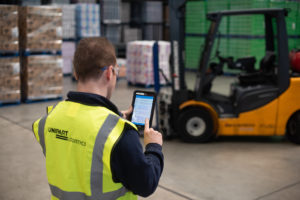Profits rise 6.6pc at Unipart
From Logistics Manager Magazine,
Published Friday 7 June 2019 12:47 pm
Unipart Group increased total group profit by 6.6 per cent to
£24.3 million last year despite a five per cent fall in revenue to
£845.4m, according to its results for the year to 31st December.
Last year, it won a £730 million, five year logistics contract with
NHS Supply Chain. It said: “Unipart has taken on around 2,000 more
people and an additional seven regional distribution centres providing
transport, inventory management, customer service, inbound logistics and
community delivery services. This is one of the largest logistics
contracts in the UK.”
Unipart also won a five-year aftermarket logistics contract with
Volkswagen. The operation will service more than 900 retailers and trade
partners across the UK for the Volkswagen, Audi, SEAT, SKODA, TPS and
Volkswagen Commercial brands.

In
additional it worked with Jaguar Land Rover to transition to JLR’s new
purpose-built 1.1 million sq ft facility in Shanghai. Unipart also
designed and implemented processes to handle, store and ship batteries
for Jaguar’s first ever electric vehicles.
In 2018, Unipart launched an electric vehicle battery manufacturing
facility. Hyperbat is a joint venture with Williams Advanced
Engineering. The business is based at an existing Unipart manufacturing
site and will deliver its first battery system for the Aston Martin
Rapide E. Unipart also won new contracts to produce steel hybrid fuel
tanks, lightweight fuel fillers and high-pressure fuel rails.
MetLase, a joint venture between Unipart and Rolls Royce, secured a
new contract for the world’s largest aerospace manufacturer, Boeing,
supplying tooling and fixtures using its 3D design capabilities, high
precision laser-cutting technology and patented assembly and joining
systems. MetLase has progressively extended its global footprint.
Chairman and group chief executive John Neill said: “2018 was a tough
year for the UK economy in general with slowing growth rates, and
particularly difficult trading conditions in the retail and automotive
sector as consumer confidence levels declined against the backdrop of
Brexit uncertainty”, he said.
“Brexit continues to be a serious short, medium and long term concern for our UK businesses. Complex, sophisticated and carefully choreographed supply chains have been developed over decades. The risk to these supply chains cannot be understated in the event of any failure to not only maintain, but improve the free flow of products, services and qualified skilled people across our borders.


